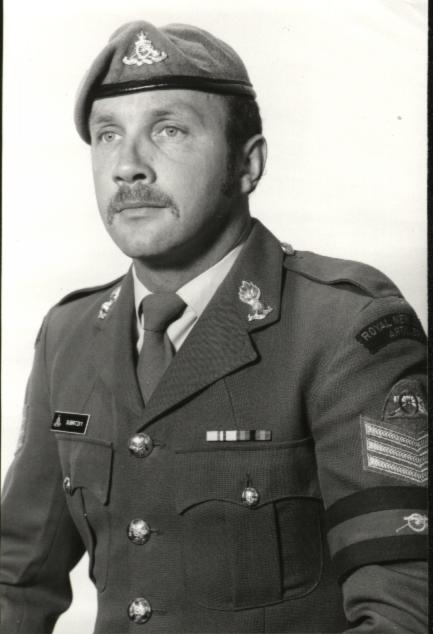BMP5
nzpoetsonline

Mike Subritsky
New Zealand
Born, Kati Kati, New Zealand, from an old Polish Noble family. Education, St Joseph's Convent Waihi, Waihi College.
Retired Professional soldier. Captain. Served in the Royal New Zealand Navy, Royal New Zealand Artillary, Royal New Zealand Air Force, US Navy-Tank Force 43 Antarctica, Polish (Independant) Reserve Brigade.
13 tours of Duty, including peace keeping operation Agila (Rhodesian War).
New Zealand War Poet. Widely Published, over a dozen books on a variety of subjects published : The Subritzky Legend (Heritage Press,1990) The Vietnam Scrapbook"The Second ANZAC Adventure" (Three feathers, 1995), The Flak Jacket Collection (Brian Riggar, 2001) Nominated NZ Book of the year awards 1996; named book of the quarter by Texas State University April - June 1998.
Numerous poetry awards and works published in overseas anthologies.
War Poetry readings on National radio, Anzac Day 2001. Open Mic and poetry readings at various North Island venues. President of the International War Veterans Poetry Archive.
At Rangiaowhai
The mid-Februrary sun burns down on me
as we enter the urupa at Rangiaowhia,
and I remove my hat at the lintel.
We the faithful gather to
welcome home Pompallier,
to Waikato's green rolling hills
and this is not so ancient,
(yet destroyed) settlement of Tainui.
How bright the sun this day,
and how blue the sky...
karakia ends and we sing a waiata,
then another and another,
no-one wants to leave,
we have Pompallier our mana is strengthened.
Finally Bishop Mariu motions 'time to go'
and the Kahura whanau approach me
to act as a pallbearer.
I am honoured.
Slowly, very slowly
we bear Pompallier high,
onto our shoulders,
then slow march off the hill
to the sound of the black birds warble
and the quiet crunching
of gravel underfoot.
Maori Words:
karakia = prayer
mana = prestige
Pompallier = French Missionary who brough the catholis faith to Maori.
Rangiawhia = One of the largest Maori settlements in the Waikato prior to it's sacking by the british Army during the 'NZ Land Wars'
Maybe they shot the Texan
Rory Calhoun rode into town every Tuesday night just after sundown,
about seven thirty, maybe eight, that Texan was never late.
Except for that one time...the last time.
The name of the town was Dry Gulch,
or Deadwood, or Apache Springs,
and Rory Calhoun always wore black...
black hat, black shirt, black horse, black gun.
But 'that' night, the great magic eye
in Grandma's lounge screened a different programme...
MMMmmm something about a pub in England?
Where three old ladies sat in a snug
and called each other 'Minnie' and 'Ena' and 'Martha'
They barely spoke english really, and said words like 'summit,'
and drank stout, and gossiped about a solo mum named Elsie Tanner.
After the programme ended someone played
'God Save The Queen' and AKTV2 shut down.
When I told Grandma in the morning
she said "Maybe they shot the Texan?"
Next Week Grandma stayed up late and watched 'Coronation Street.'
I went to bed...what use is a television if you can't watch gunfights?
Special Sundays
On special Sunday's, Uncle Hone cut down a dried eel
from behind the old black stove,
wiped the fly blow and dust off with a wet mutton cloth
and cooked it for lunch...MMMmmm a delicacy.
Sometimes cooked in milk, and sometimes fried,
always on the old black Shacklock.
The rimu smoke drifting up and out of our whare.
He Always hung our biggest eels behind the stove
to dry.
Mid you, the very largest ells we caught were from the big drain,
the one that ran from Lockharts orchard, past the Bidios family farm
to Te Puna beach.
He had told us never to fish in that drain,
but we knew that the very biggest eels were to be found there,
and so they became the victim of our flax knots and bacon squares...
they tasted beautiful.
Later, years later, I was to learn that the Rahui placed on the drain was by Uncle Hone's own whanau...
His uncle had shot a British soldier, and the mate had fallen into our drain
to become the kai of the largest eels,
that we boys hung almongst the painted silver enamel
behind Auntie Rama's stove.
Maori Words:
kai = food
mate = dead body
rahui = ban on an area
BMP5
nzpoetsonline